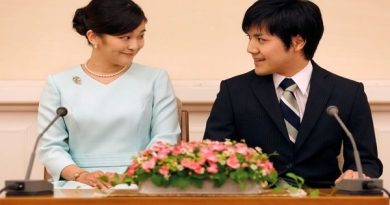Myanmar: Aung San Suu Kyi jailed for 4 years
A Myanmar court on Monday sentenced the former head of the civilian government Aung San Suu Kyi to four years in prison for inciting public unrest and violating health rules related to COVID-19 among others.
The court delivered its first verdict since the deposed leader was taken into custody when the military staged a coup on February 1st.
Aung San Suu Kyi faces at least 12 charges and is being tried in a special court set up in the capital, Naypyitaw.
The Nobel Peace Prize laureate also faces charges of violating the law on state secrets and corruption.
She is expected to face similarly harsh rulings under the ongoing military-controlled court proceedings.
The Nobel Peace Prize winner, overthrown by the military in February, was sentenced to two years in prison under section 505 (b) and two years in prison under the Natural Disasters Act, Zaw Min Tun, a spokesman for the country’s military junta, said.
Aung San Suu Kyi has said she is unaware of any statements issued after her detention and has denied the charges.
It was just a year ago that her National League for Democracy party won a landslide election victory that would have put her and her party back in office for a second consecutive five-year term after decades of army-dominated rule.
The military seized back power on Feb. 1, arresting Suu Kyi and scores of others, and plunging Myanmar into turmoil after a brief period of stability and promises of more democracy.
Suu Kyi’s career has been marked by highs — winning the Nobel Peace Prize — and lows — spending 15 years in house arrest under a previous military government.
Her father was Aung San, the country’s independence hero. His assassination in 1947 just months before Myanmar — then called Burma — was freed from British colonial rule prefigured the country’s extended turbulence.
Suu Kyi in early adulthood led an expatriate’s life after marrying Oxford University scholar Michael Aris, with whom she had two sons.
She plunged into her country’s politics in 1988 when she returned to her homeland to take care of her dying mother as large protests were breaking out against the military dictatorship of Ne Win. She helped found the National League for Democracy but paid a price in 1989 when she was put under house arrest, where she would spend 15 of the following 22 years.
Her fame spread in 1991 when she was awarded the Nobel Peace Prize, but it took 21 years until she won a seat in a parliamentary by-election.




